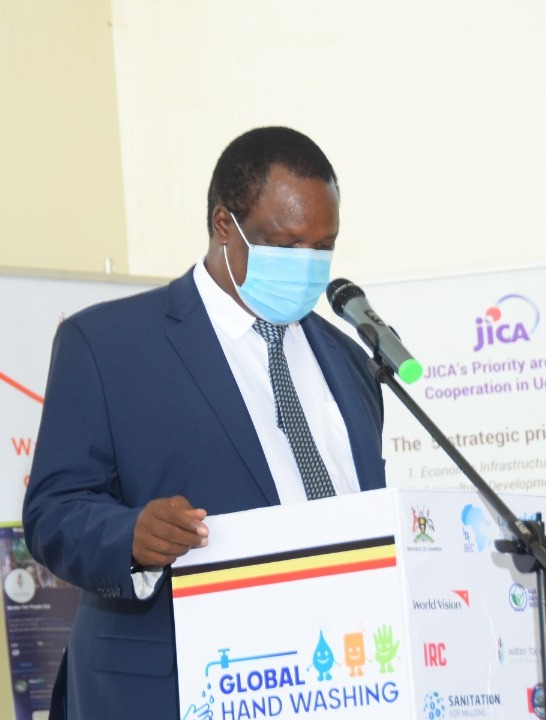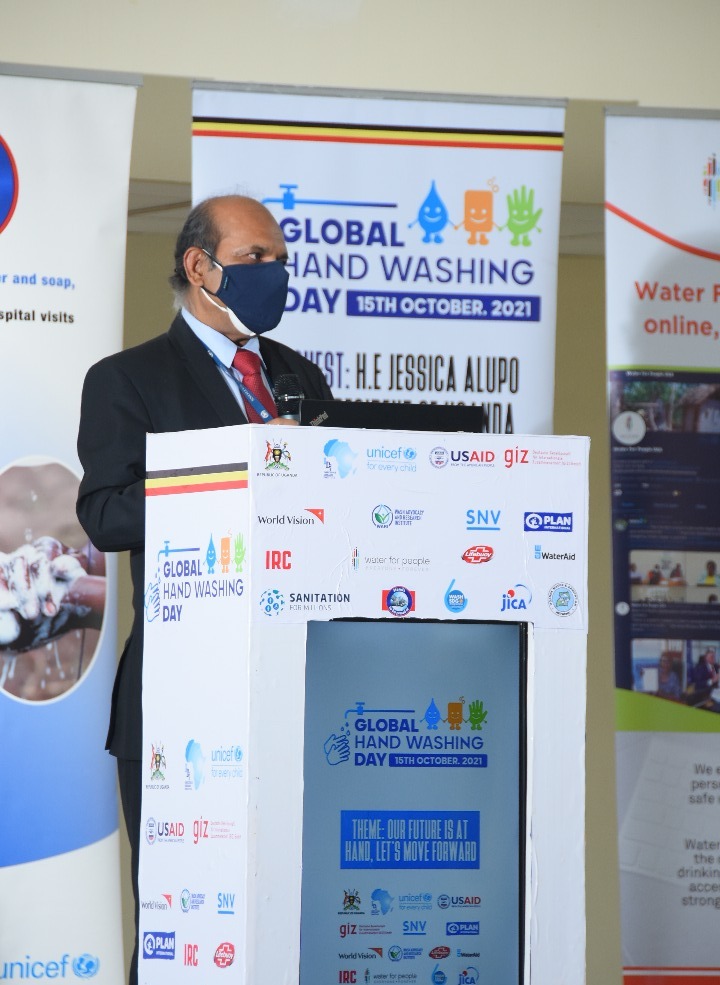Uganda’s handwashing rate has climbed to 54.7% in urban areas, surpassing the country’s 2020 National Development Plan II target of 50%.
Before the COVID-19 pandemic, the handwashing rate in urban areas stood at 40%. In the rural areas handwashing has also improved from 38% to 44.7%, according to current figures by the water and environment ministry.
Due to the COVID-19 threat, Ugandans embraced handwashing as one of the key measures to reduce the spread of the virus.
The figures were revealed by Joseph Eyatu, the commissioner rural water supply and sanitation at the water ministry during the launch of the Global Handwashing Day celebration activities in Kampala.

“For over five years, we were stuck at 37%, but because of the pandemic, we have jumped to 61%. This is great progress and we hope the momentum is maintained,” Eyatu said. Eyatu represented the Minister for Water and Environment, Sam Cheptoris.
In order to educate and encourage the public to see ways and benefits of properly washing their hands with soap, every year Global Handwashing Day is celebrated on October 15.
The day was celebrated under the theme; “Our Future is at Hand, let’s move forward together”.
“Washing hands frequently with soap and clean water protects you, your family and community against diseases such as like diarrhoea, cholera and typhoid,” Cheptoris said.
Diarrhoea is a major cause of morbidity and mortality around the world, and is the second leading cause of death among children under five.
The simple act of handwashing with soap at the correct moments, particularly after contact with faeces, may reduce the risk of diarrhoea by 23–40%
“Washing hands will save us money, time and hospital visits,” Cheptoris said.
Inoue Yuki, a representative from Japan International Co-operation Agency (JICA), said sensitisation and increased accessed to water and handwashing facilities will be key in future.
“Handwashing rates tend to be higher when facilities are accessible and suitably located. This is what we need to be doing to have more people washing hands,” Yuki said.
In response to the COVID-19 pandemic, people installed and used handwashing facilities. Local governments were supported by non-governmental organisations and private sector donations for accelerated installation of handwashing stations with soap and water in public places.
“COVID-9 is serious to date. We do not know when it will go away. We are committed to supporting the water ministry fight COVID-19 and promote hygiene,” Yuki said.
Shiva Singh, the water, sanitation, and hygiene services (WASH) manager at Unicef Uganda, said more resources are needed to change the attitude of the communities.

“If there is one thing we have learnt from the COVID-19 era, it is, that personal hygiene is of the utmost importance for our health,” Singh said.
The benefits of having clean hands and proper washing were widely publicised by governments and health agencies across the globe.
“Availability of water is key and we have put interventions to improve access to water during this pandemic and we shall continue improving,” said Martha Naigaga the sanitation co-ordinator at the Ministry of Water and environment.
“Let us make handwashing a way of life,” she added.
The Global Handwashing Day was first observed in 2008 in Stockholm, Sweden. The UN General Assembly later marked October 15 as the day to observe Global Handwashing Day.

















